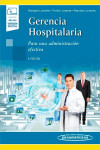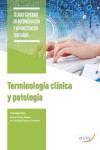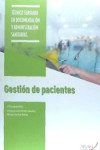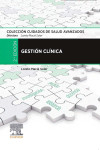HEALTH TECHNOLOGY ASSESSMENT AND HEALTH POLICY TODAY: A MULTIFACETED VIEW OF THEIR UNSTABLE CROSSROADS
Llano-Señaris, J. - Campillo-Artero, C.
Datos técnicos
- ISBN 9788494011856
- Año Edición 2014
- Páginas 157
- Encuadernación Rústica
- Idioma Inglés
Sinopsis
A wealth of documents dealing with health technology assessment (HTA) has been published over the last three decades. HTA allegedly is one of the bedrocks of regulation and medical decision making. However, countervailing visions contend that geographical variations in the role that HTA is actually playing within countries pinpoints specific room for improvement.
Given our social preferences, cherry-picking HTA’s features and successes over the last decades moves it away from its possibility frontier. Some of the most noteworthy hindrances that HTA faces, in several countries, to making headway towards its consolidation as an efficient tool for regulation and decision making are as follows: insufficient resources, delays in assessment, inadequate priority setting, regulatory capture, public distrust, actual influence on regulatory decisions, the need for strengthening international cooperation and harmony, the lack of sound and consistent assessments of diagnostic tests, medical devices and surgical innovations and, limited dissemination. Time has come for HTA to take a renewed stand. There is a pressing need to submit HTA to indepth critical scrutiny.
This book disentangles these and other issues in connection with the advancement of HTA and its interface with health policy. It highlights the factors that should shape its progress in the near future. Interdisciplinary and critical views from a number of professionals are put together in a prescient order to cast some light and make recommendations as to the next steps HTA should take to be fit for purpose.
Índice
PART I: CRITICAL OVERVIEW
CHAPTER 1
Health Technology Assessment and its Interface with Regulation, Policy and Management
Michael Drummond
CHAPTER 2
Health Technology Assessment (HTA) and the Incentives to Innovation in the Life Cycle of a Health Technology
Joan Rovira
CHAPTER 3
The Wisdom Tooth of Health Technology Assessment
Ricard Meneu
CHAPTER 4
Regaining Health Technology Assessment from Oblivion: Improving and Integrating Regulation of Drugs, Medical Devices, Diagnostic Tests and Surgical Innovations
Carlos Campillo-Artero
PART II: ISSUES
CHAPTER 5
Four Issues in Cost-Effectiveness Analysis and Health Technology Assessment: a View From the Touch-line
Anthony J. Culyer
CHAPTER 6
Measuring QALYs for HTA and Health Policy Decision Making: Bridging the Gap Between Power and ACT
José-María Abellán-Perpiñán
CHAPTER 7
What Health Technology Assessment System Do we Really Need? A Critical Review of the Current Situation of Health Technology Assessment in Five European Countries
Juan E. del Llano-Señarís
CHAPTER 8
The Final Stretch? How Shared Decision Making Extends Health Technology Assessment to Meet Patient Preference
Stuart W. Grande and Glyn Elwyn
CHAPTER 9
Dissemination of Health Technology Assessment
H. David Banta
Authors
Juan Ernesto del Llano
Dr Juan Ernesto del Llano Senarís, Physician (1981) and PhD in Medicine (1990) from Complutense University, Madrid. Specialist in Preventive Medicine and Public Health (MIR 1982–84, La Paz Hospital, Madrid). MSc in Community Health, Usher Institute, University of Edinburgh (1985-86). European Healthcare Leadership Program, INSEAD (1999-2000). Senior Management of Healthcare Institutions Program, IESE, Navarra University (2004). Advanced Health Leadership Forum, Universitat Pompeu Fabra (UPF), Barcelona and University of California, Berkeley (2005). General Director, Gaspar Casal Foundation (FGC). Academic Director and Professor of Public Health and Health Service Management, Master of Health Service Administration and Management (MADS), University Pompeu Fabra and Gaspar Casal Foundation. Associate Researcher, Centre of Health Economics Research (CRES), UPF. President, Spanish Association for Healthcare Technology Evaluation (AEETS). Associate Editor, Gestión Clínica y Sanitaria Journal. Biomedical Reviewer, National Agency for Assessment and Prospective (ANEP). Assistant Professor, National Agency of Evaluation, Quality and Accreditation (ANECA). Author of more than 50 peer-reviewed articles and twelve books.
Carlos Campillo
Dr Campillo-Artero holds a PhD in Medicine (University of Barcelona), an MPH (The Johns Hopkins University School of Public Health, Baltimore, MD, USA) and is a specialist in preventive medicine and public health. He works in clinical, health services and health policy research for the Balearic Health Service. Dr Campillo-Artero was a former staff member and current consultant of the World Health Organization (in Washington, DC), and is a current member of the Technical Committee on Clinical Safety of the Spanish Minister of Health, Social Services and Equity. Professor and tutor in several master programmes in clinical, health services evaluation and pharmacoeconomics. He is associate editor and referee of several national and international medical journals and associate researcher at the Centre for Research in Health and Economics, Pompeu Fabra University (Barcelona, Spain).
José Mª Abellán-Perpiñán
José Maria Abellán is Professor at University of Murcia, Spain. He is Head Researcher of the Health Economics and Economic Evaluation Research Group of the same University, Coordinator of the Economic Evaluation Group of the Spanish Health Economics Association/ Asociación de Economía de la Salud (AES) and Vice President of this Association. His primary research interests are Health Economics, Behavioural Economics and Experimental Economics. He has published different papers about QALYs and health state utility measurements in leading journals such as Health Economics, Journal of Health Economics, or Management Science. One of his articles was awarded as the best paper in Health Economics published by a Spanish researcher in 2012. At present, he is working in the development of methods that help to minimise psychological biases that distort preference elicitations.
David Banta
David Banta was born in the United States of America. He was awarded an MD degree from Duke University, and MPH and MS degrees from the Harvard School of Public Health. In 1975 he joined the Congressional Office of Technology Assessment (OTA) where he headed the health activities group. During his 8 years with OTA, his team defined the basic methods and strategies for health technology assessment (HTA). In 1985, Dr Banta moved to the Netherlands, taking Dutch citizenship in 1993. Dr Banta headed the first European project aimed at coordinating HTA in Europe, EUR-ASSESS. During these years, Dr Banta travelled to many countries to consult on HTA, spending considerable time in China, Malaysia, Poland, Romania, Latvia and Brazil. Dr Banta is Professor at Maastricht University and has published extensively on HTA, including its international aspects, health technology diffusion and health policy.
Anthony J. Culyer
Tony Culyer is a professor of economics at the University of York, UK and Senior Fellow at the Institute of Health Policy, Management and Evaluation at the University of Toronto, Canada. He was the founding Organiser of the Health Economists’ Study Group. For 33 years he was the founding co-editor, with Joe Newhouse, of the Journal of Health Economics. He was founding Vice Chair of the National Institute for Health and Care Excellence (NICE) and chairs NICE International’s Advisory Group. He is Editor-in-Chief of the on-line Encyclopaedia of Health Economics. Dr Culyer was responsible for the 1994 report that led to the redesign of the NHS’s system for supporting R&D. For many years he was chair of the Department of Economics & Related Studies at York University and, for six of these years, was deputy vice-chancellor. In Canada he was Chief Scientist at the Institute for Work & Health. He helped to found the Citizens’ Council and the Occupational Cancer Research Centre. The third edition of his The Dictionary of Health Economics (Edward Elgar) has just been published. A collection of his non-technical essays called The Humble Economist is available on-line free of charge.
Michael Drummond
Michael Drummond, BSc, MCom, DPhil, is Professor of Health Economics and former Director of the Centre for Health Economics at the University of York, UK. His particular field of interest is in the economic evaluation of healthcare treatments and programmes. He has undertaken evaluations in a wide range of medical fields including care of the elderly, neonatal intensive care, immunisation programmes, services for people with AIDS, eye healthcare and pharmaceuticals. He is the author of two major textbooks and more than 600 scientific papers, and has acted as a consultant to the World Health Organization and the European Union. He has been President of the International Society of Technology Assessment in Health Care, and the International Society for Pharmacoeconomics and Outcomes Research. In October 2010 he was made a member of the Institute of Medicine in the USA.
Glyn Elwyn
Professor Elwyn is a physician-researcher, professor andsenior scientist at The Dartmouth Health Care Delivery Science Center and The Dartmouth Institute for Health Policy and Clinical Practice, USA. He leads a research group with an interest in implementing and measuring shared decision making, user-centred design of patient decision support tools and their integration into healthcare delivery systems. His current focus is on option grids and measurement of their impact on practice. He also holds the following additional position: Chair at the Scientific Institute for Quality of Healthcare, Radboud University Nijmegen Medical Centre, Netherlands.
Stuart W. Grande
Dr Stuart Grande is a postdoctoral fellow at the Dartmouth Center for Health Care Delivery Science in Hanover, New Hampshire. Stuart holds a PhD in health behaviour and an MPA in public management from Indiana University, where he received the Keller Runden Fellowship for his work in community based conflict resolution. Dr Grande’s research broadly explores shared decision making and innovative methods of patient engagement. More specifically, he explores the social effects of new technologies on patient-provider communication and peer support among disenfranchised groups. He also leads an interdisciplinary qualitative research group at Dartmouth College whose remit is to support novel methods that leverage the patient voice across healthcare systems and stakeholders.
Ricard Meneu
Dr Ricard Meneu is Vice President of the Instituto de Investigación en Servicios de Salud (Institute of Health Services Research) in Spain. He is a physician specialized in preventive medicine and public health and holds a PhD in economics (University of Valencia). He works in healthcare management for the Valencian Health Service. Former Head of Service of Health Technology Assessment and Head of Service of Quality in Health Care, he was member of the Technical Committee on Clinical Safety to the Spanish Minister of Health, Social Services and Equity. Editor in chief of the quarterly Gestión Clínica y Sanitaria, author of more than one hundred articles and book chapters, and also referee of several national and international medical journals. Professor and tutor in several master programmes in health economics, health services management and pharmacoeconomics, is associate researcher, Centre for Research in Health and Economics, Pompeu Fabra University (Barcelona, Spain).
Vicente Ortún
Vicente Ortún is Dean and Professor of the School of Economic and Business Sciences, University Pompeu Fabra of Barcelona, Spain. He is founder, former director, and member of the Center for Research in Economics and Health (CRES), University Pompeu Fabra. Author of 400 articles and books. Director of the book series on Health Economics and Health Management, with 30 titles published by Springer and Elsevier. MBA by ESADE (1969), Master of Science from Purdue University (1970), BA and PhD in Economics by University of Barcelona (1990). Doctoral studies in Public Health at Johns Hopkins University and Visiting Scholar (2009) in the Department of Economics at the Massachusetts Institute of Technology (MIT). Business and public policy experience at regional, national and international levels.
Former president of the Spanish Society of Public Health and Health Administration (SESPAS), former president of the Association of Health Economics (AES), former secretary of the European Public Health Association (EUPHA) and merit member of CAMFiC.
Joan Rovira
Dr Joan Rovira Forns is Professor Emeritus at the Department of Economics, University of Barcelona, Spain. Associate Professor of the Andalusian School of Public Health. Senior Health Economist for Pharmaceuticals at the Department of Human Development of the World Bank, Washington (2001–2004). Short-term professional at the WHO European Office in Copenhagen, as acting Officer for Health Economics (1989), consultant on health policy and economics for the WHO, the PAHO, the IDB and the European Commission. Editor-in-Chief of the journal Cost-Effectiveness and Resource Allocation. His present areas of interest include economic evaluation of health technologies, optimization of clinical trials, modelling disease processes, health systems financing, intellectual property policies, pricing and reimbursement, generic drug policies, and other topics related to the accessibility to medicines.
Otros libros que te pueden interesar
- ¿Quiénes somos?
- Gastos de envío
- Política de privacidad
- Políticas de devolución y anulación
- Condiciones Generales de contratación
- Contacto
2025 © Vuestros Libros Siglo XXI | Desarrollo Web Factor Ideas










